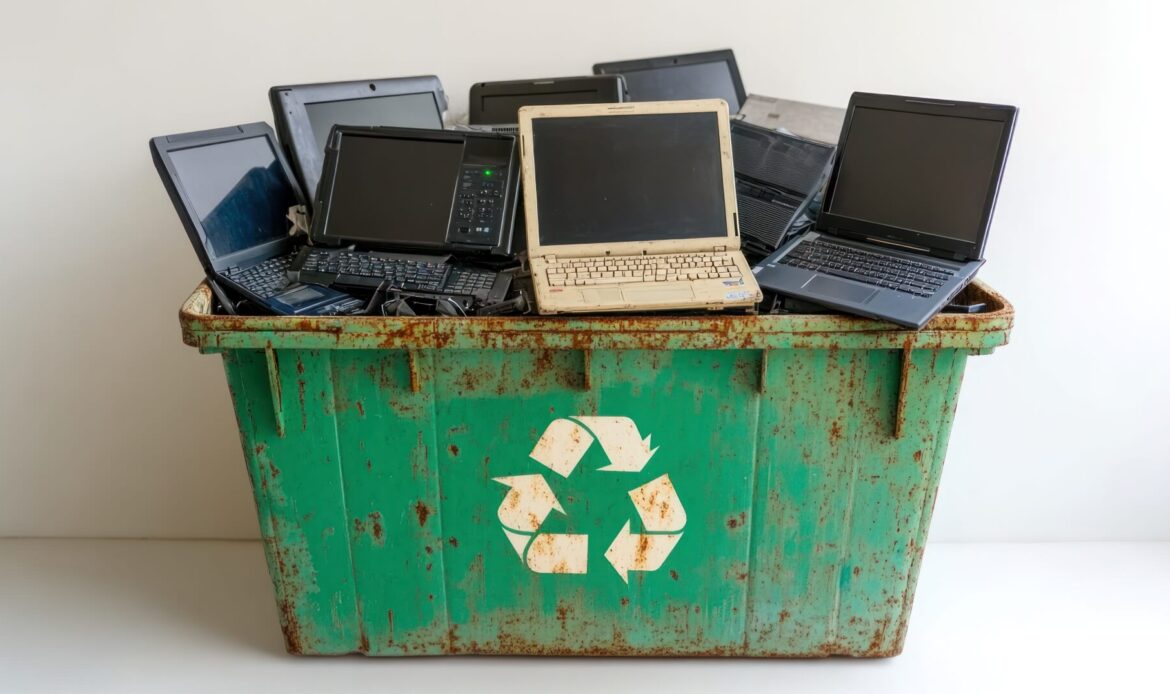As technology continues to evolve at an unprecedented pace, so does the accumulation of discarded electronics. In 2025, responsible e-waste disposal is more critical than ever. With increasing environmental concerns, growing volumes of electronic waste, and escalating risks related to data security and regulatory compliance, it’s essential to understand why responsible disposal matters and how it can positively impact our world.
Table of Contents
Understanding E-Waste
Electronic waste, or e-waste, refers to discarded electronic devices such as smartphones, computers, tablets, televisions, printers, and other digital equipment. These devices often contain toxic materials like lead, mercury, and cadmium, which pose environmental and health risks if not properly handled. As newer models replace older ones at a rapid pace, the global volume of e-waste has surged. According to the Global E-waste Monitor, over 53 million metric tons of e-waste were generated in 2019, and that number is projected to exceed 74 million metric tons by 2030.
The Environmental Impact of Irresponsible Disposal
Improper disposal of electronic waste contributes significantly to environmental degradation. When e-waste ends up in landfills, toxic substances can leach into the soil and groundwater, contaminating ecosystems and water supplies. The burning of e-waste, a common practice in some regions, releases hazardous fumes into the air, affecting air quality and human health.
In 2025, the environmental consequences of irresponsible disposal are even more pronounced due to increased electronics usage in homes and businesses. Responsible disposal, including recycling and reusing electronic components, minimizes the ecological footprint and supports sustainability.
Data Security and Privacy Concerns
In the digital age, data is one of the most valuable assets. Electronic devices often store sensitive personal and corporate information, even after they are no longer in use. Discarding such devices without proper data sanitization can lead to serious security breaches, identity theft, and corporate espionage.
Responsible e-waste disposal involves secure data destruction methods like wiping, degaussing, or physically destroying storage media. In 2025, with rising cyber threats and strict data protection regulations such as GDPR and CCPA, businesses and individuals must prioritize secure disposal practices to safeguard their information.
Legal and Regulatory Compliance
Governments and international organizations have implemented stringent regulations governing e-waste disposal. These laws aim to reduce environmental harm and encourage recycling. Non-compliance can lead to hefty fines, legal action, and reputational damage.
In 2025, compliance with regulations such as the WEEE Directive in Europe, R2 (Responsible Recycling) certification, and e-Stewards certification in the United States is not optional. Companies must partner with certified e-waste recyclers who follow industry best practices and maintain proper documentation to ensure full compliance.
Economic Opportunities in E-Waste Management
Beyond environmental and security considerations, responsible e-waste disposal presents economic opportunities. Valuable materials such as gold, silver, copper, and rare earth elements can be recovered from old electronics. Recycling these materials reduces the need for mining, lowers production costs, and supports the circular economy.
In 2025, the e-waste recycling industry continues to grow, offering job creation, innovation, and investment opportunities. Companies that implement efficient disposal and recycling programs not only contribute to sustainability but also gain a competitive edge in the market.
Supporting the Circular Economy
A circular economy aims to minimize waste and make the most of resources. Responsible e-waste disposal is a cornerstone of this model. By refurbishing, reusing, and recycling electronics, we can extend their lifecycle and reduce the demand for raw materials.
In 2025, businesses and consumers alike are encouraged to adopt circular practices. This includes donating functional devices, purchasing refurbished electronics, and supporting manufacturers that design products for longevity and easy disassembly.
Corporate Social Responsibility (CSR)
In today’s socially conscious environment, businesses are expected to demonstrate their commitment to environmental stewardship and ethical practices. Responsible e-waste disposal is a tangible way for companies to fulfill their Corporate Social Responsibility (CSR) goals.
By implementing comprehensive e-waste management policies, companies can showcase their dedication to sustainability, improve stakeholder relationships, and enhance brand reputation. In 2025, CSR is more than a buzzword—it’s a business imperative.
Best Practices for Responsible E-Waste Disposal

To ensure effective e-waste disposal, individuals and organizations should adopt the following best practices:
- Inventory Management: Keep track of all electronic devices and their lifecycle.
- Partner with Certified Recyclers: Work only with e-waste recyclers who are certified and compliant with international standards.
- Secure Data Destruction: Ensure all data is irreversibly destroyed before disposal.
- Employee Training: Educate staff on proper e-waste handling and disposal procedures.
- Donation and Reuse: Donate functional electronics to schools, NGOs, or other organizations.
- Buy Green: Purchase electronics from manufacturers committed to sustainability.
The Role of Consumers and Businesses
Both consumers and businesses have a crucial role to play in managing e-waste responsibly. Consumers can make a difference by recycling devices at designated drop-off points, avoiding impulse electronics purchases, and supporting eco-friendly brands. Businesses must develop clear e-waste policies, engage in regular audits, and lead by example.
Public awareness campaigns, government incentives, and educational initiatives can also drive change by highlighting the importance of responsible disposal.
Looking Ahead
The future of e-waste management lies in innovation and collaboration. Emerging technologies such as AI, blockchain, and IoT can streamline tracking, enhance recycling efficiency, and ensure transparency in the disposal process. Cross-sector partnerships will be essential in building an effective global e-waste infrastructure.
As we move further into 2025 and beyond, responsible e-waste disposal will remain a cornerstone of environmental protection, data security, and sustainable development. By taking collective action today, we can ensure a cleaner, safer, and more responsible tomorrow.
You can contact us anytime to get quote for you.



1 reply on “Why Responsible E-Waste Disposal Matters in 2025”
[…] Read More: Why E-Waste Disposal Matters […]